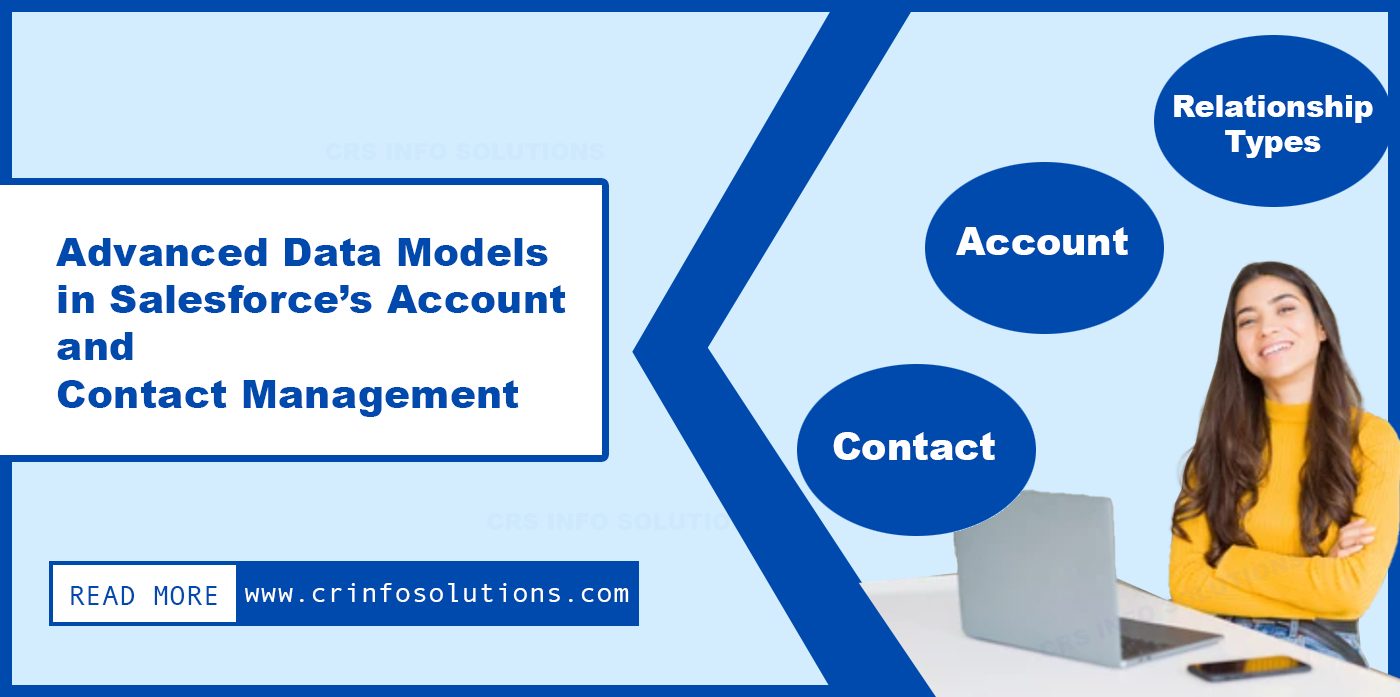
Advanced Data Models in Salesforce’s Account and Contact Management

In Salesforce, the Account and Contact relationship is a fundamental aspect of the CRM’s data model, designed to represent real-world business relationships between companies (Accounts) and individuals (Contacts). Understanding and effectively managing this relationship is crucial for effective customer relationship management. Here’s how it works:
- Account: This represents an organization, company, or consumer. Accounts can be further classified as business or person accounts, depending on the Salesforce setup and business model.
- Contact: This represents an individual associated with an account. Contacts can be employees of a company (business account) or individuals in the case of a personal account.
- Relationship Types:
- Standard Relationship: In a typical B2B model, multiple contacts are linked to a single account, representing the employees of a company.
- Person Account: For B2C models, a person account merges the account and contact into a single record, representing an individual consumer.
- Master-Detail and Lookup Relationships: Salesforce allows for the creation of custom relationship types using master-detail and lookup relationships. This flexibility is useful for defining unique relationships between different Salesforce objects.
- Role Hierarchy: Contacts can be assigned specific roles (like decision-maker, influencer, etc.) within an account, providing a clearer understanding of their involvement.
- Opportunities and Cases: Contacts can be associated with opportunities and cases, enabling sales and service teams to track interactions and transactions at an individual level.
- Reporting and Analytics: By linking contacts and accounts, Salesforce provides comprehensive reporting and analytics capabilities. This helps in understanding customer behavior, sales trends, and service issues at both the individual (contact) and organization (account) level.
- Data Integrity and Management: Proper management of account-contact relationships ensures data integrity and accuracy in customer data. This is crucial for effective marketing, sales, and customer service activities.
Top 10 Interview questions on Account and Contact Relationship in Salesforce
Here are the top 10 interview questions focused on the “Account and Contact Relationship in Salesforce” for experienced roles. These questions are designed to assess in-depth knowledge and practical experience with Salesforce’s data model and CRM functionalities.
- Data Model Complexity: “Can you describe a complex data model you’ve worked with involving Accounts and Contacts in Salesforce, and how you managed the relationships and hierarchies within it?”
- Customization and Configuration: “How have you customized the standard Account and Contact relationship in Salesforce to suit specific business needs? Can you give an example of such a customization?”
- Integration Challenges: “What challenges have you faced when integrating external systems with Salesforce Accounts and Contacts, and how did you overcome them?”
- Role Hierarchies and Permissions: “Explain how you have used role hierarchies and sharing rules to manage access and visibility of Accounts and Contacts in a large organization.”
- Data Migration and Integrity: “Describe your experience with data migration involving Accounts and Contacts. How did you ensure data integrity and accuracy during the migration process?”
- Reporting and Analytics: “What types of custom reports or dashboards have you created for Accounts and Contacts, and how did they provide value to the business?”
- Automation with Apex and Workflow: “Can you discuss a scenario where you used Apex code or workflow rules to automate processes related to Accounts and Contacts?”
- Person Accounts: “How have you implemented and managed Person Accounts in Salesforce? What are the key considerations and challenges in using Person Accounts?”
- Handling Duplicate Records: “Describe your approach to identifying and resolving duplicate Account and Contact records in Salesforce. What tools or methods do you prefer?”
- Impact of Lightning Experience: “How did the transition to Salesforce Lightning impact Account and Contact management in your experience? Were there any specific features or changes that you had to adapt to?”
Seeking expert guidance in Salesforce training? Look no further! CRS Info Solutions offers exceptional and professional tutors dedicated to helping you master Salesforce. With daily notes, comprehensive materials, and tailored guidance for certification exams, our program equips you with the knowledge and skills essential for excelling in job interviews. Don’t miss this opportunity – enroll now for a free demo session today and embark on your journey to Salesforce proficiency!

